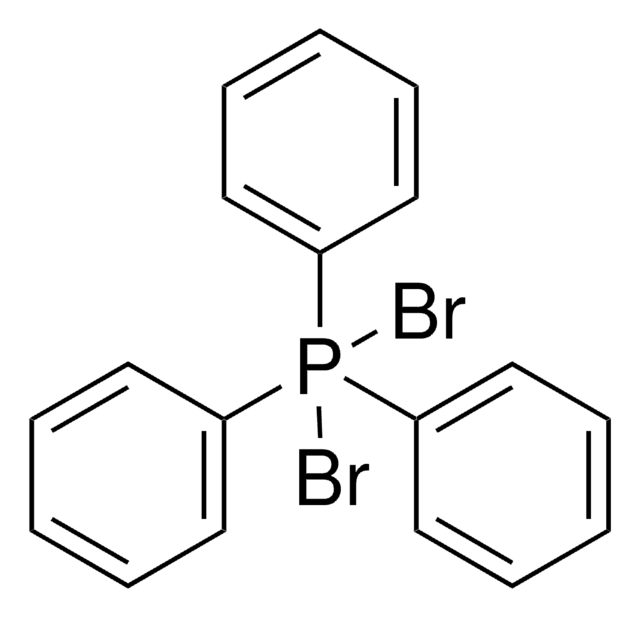338389
Triphenylphosphine hydrobromide
97%
Synonym(s):
Ph3P · HBr, Ph3P · HBr, Triphenylphosphonium bromide
About This Item
Recommended Products
Assay
97%
reaction suitability
reaction type: Buchwald-Hartwig Cross Coupling Reaction
reaction type: Heck Reaction
reaction type: Hiyama Coupling
reaction type: Negishi Coupling
reaction type: Sonogashira Coupling
reaction type: Stille Coupling
reaction type: Suzuki-Miyaura Coupling
mp
196 °C (dec.) (lit.)
functional group
phosphine
SMILES string
Br.c1ccc(cc1)P(c2ccccc2)c3ccccc3
InChI
1S/C18H15P.BrH/c1-4-10-16(11-5-1)19(17-12-6-2-7-13-17)18-14-8-3-9-15-18;/h1-15H;1H
InChI key
CMSYDJVRTHCWFP-UHFFFAOYSA-N
Looking for similar products? Visit Product Comparison Guide
Application
Storage Class Code
11 - Combustible Solids
WGK
WGK 3
Personal Protective Equipment
Choose from one of the most recent versions:
Already Own This Product?
Find documentation for the products that you have recently purchased in the Document Library.
Customers Also Viewed
Our team of scientists has experience in all areas of research including Life Science, Material Science, Chemical Synthesis, Chromatography, Analytical and many others.
Contact Technical Service









